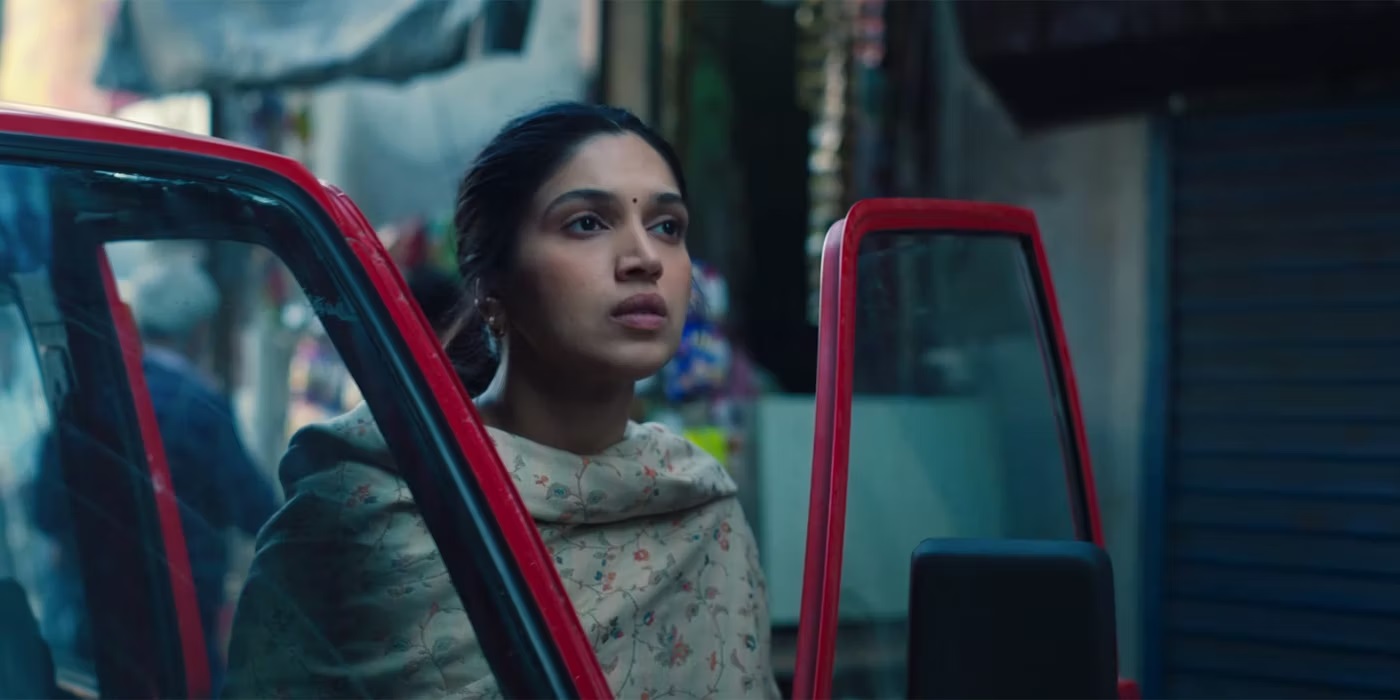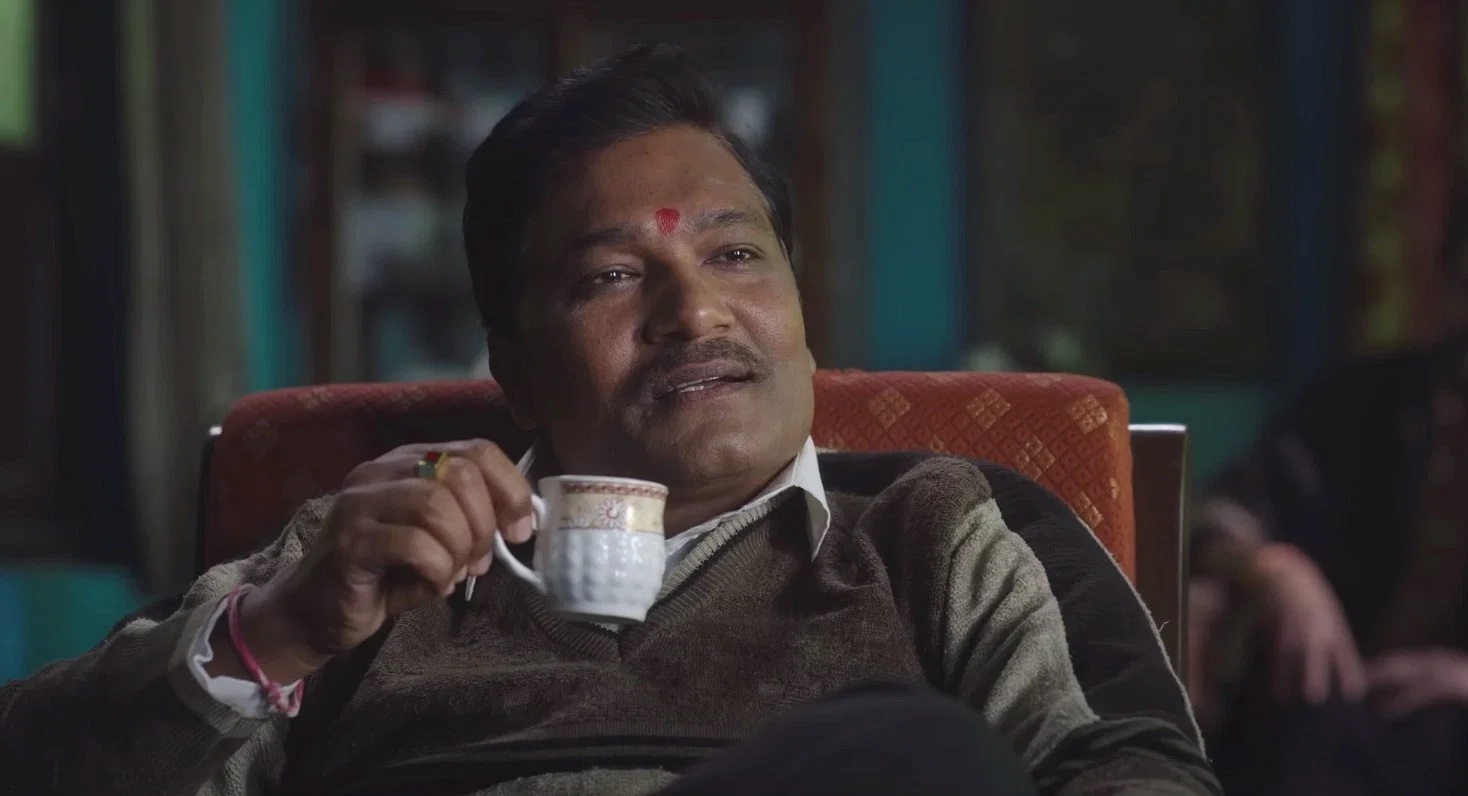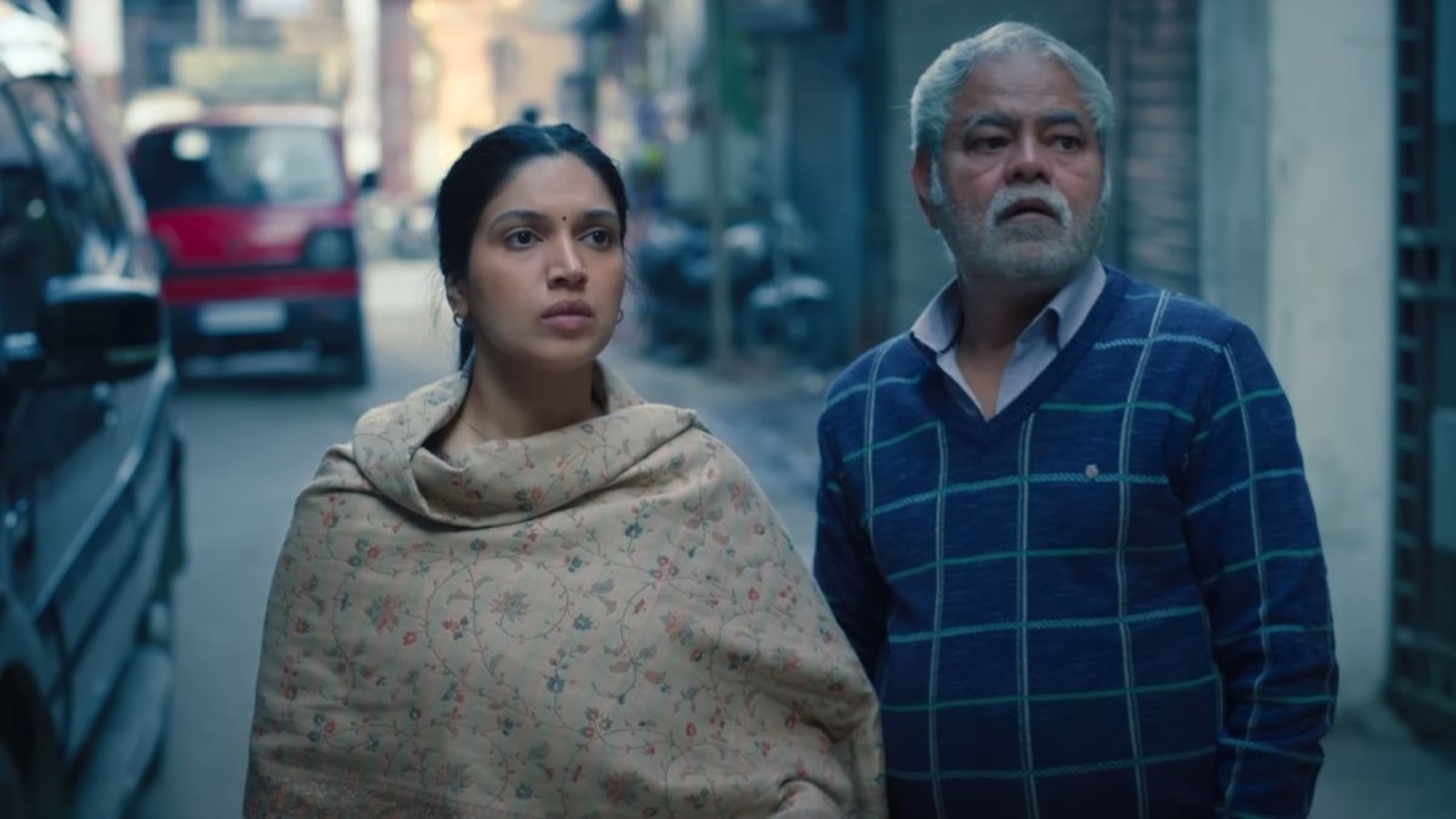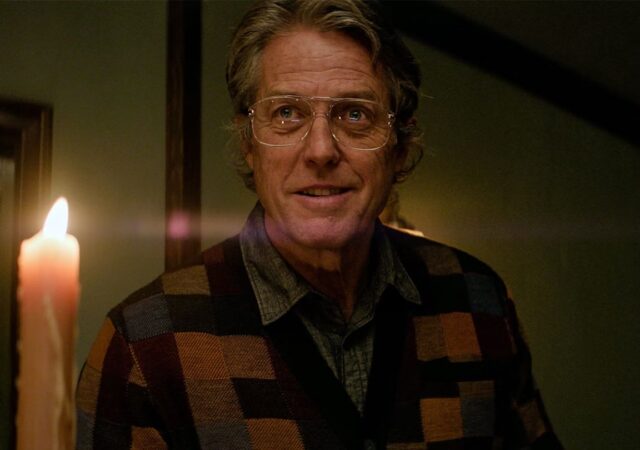Bhakshak touches on a reality that is far too familiar to women in Bangladesh and across the Indian subcontinent: the constant, insidious presence of abuse. As a woman watching this film, I couldn’t help but feel a deep sense of connection to the women it portrays—because, let’s be honest, every woman I know has experienced some form of abuse, whether overt or subtle. It’s a horrible reality that we are forced to navigate daily, and Bhakshak does well to capture that grim truth in its own way.
Pulkit’s film, starring Bhumi Pednekar as Vaishali Singh, a small-town journalist striving to expose the horrific abuse of minors in a government-funded shelter home, aims to shine a light on the dark underbelly of corruption and exploitation. Vaishali’s pursuit of justice is not just a professional endeavor but a personal mission, one that resonates with the ongoing fight many women face against systemic violence and oppression. Yet, while Bhakshak tackles these critical issues head-on, there are moments where it misses the mark, leaving me both appreciative of its efforts and frustrated by its execution.

I have always admired Bhumi Pednekar for her ability to embody strong female characters who challenge societal norms, and her portrayal of Vaishali is no exception. She is a woman battling not only the corrupt system but also the ingrained patriarchy within her own life.
Her struggles as a journalist in a male-dominated society, where even her husband questions her choices, reflect the pressures that so many women in our part of the world face. Vaishali’s relentless drive to uncover the truth, despite the threats to her safety and the apathy of those around her, is deeply inspiring. Pednekar’s performance carries the film, infusing it with a raw emotionality that feels authentic.
That being said, the film’s pacing and structure sometimes undermine the very urgency of Vaishali’s mission. Bhakshak takes a slow-burn approach, which works well in moments of introspection but falls flat when it should be building tension. The horrors of abuse in the shelter home are conveyed through discussions and implications, which I appreciated—there’s no need for graphic depictions of violence when the weight of the subject matter speaks for itself. However, the film struggles to maintain a sense of momentum. For a story about uncovering corruption and abuse, it lacks the thrill of an investigative drama. There’s no palpable danger, no edge-of-your-seat suspense that would make the stakes feel as high as they are supposed to be.
In one particularly telling moment, a police officer tells Vaishali, “My hands are tied. You get me the evidence, and I’ll make the arrests.” It’s a line that stuck with me because it encapsulates the helplessness that many women feel when seeking justice in a system rigged against them.
The idea that Vaishali, a journalist, must single-handedly gather evidence to bring the abusers to justice highlights the deep dysfunction in both the police and judicial systems. It’s a sobering reminder that women, even when they are the ones taking on the burden of exposing the truth, often find themselves without real support. This sentiment hit close to home for me. It’s something I’ve seen time and again: women standing up against powerful abusers, only to find themselves alone in their fight.
I think what Bhakshak does well is show the resilience of women like Vaishali, who refuse to back down despite the overwhelming forces against them. The film captures the quiet, persistent courage required to navigate a society where abuse is normalized, where speaking out is often met with indifference or worse, retribution. In this way, the movie mirrors the experiences of countless women in Bangladesh and India, where the fear of societal backlash often keeps victims and whistleblowers silent. Vaishali’s determination despite her family’s opposition was empowering.

But where the film falters is in its portrayal of the antagonist, Bansi Sahu, played by Aditya Srivastava. Sahu is supposed to be a menacing figure, a corrupt politician abusing his power to exploit the vulnerable. Yet, throughout the film, he comes across as surprisingly accessible and underwhelming.
There’s a strange disconnect between how often the characters mention Sahu’s influence and the way he is actually portrayed on screen. Everyone seems to have easy access to him, and he never truly feels like the dangerous figure the narrative sets him up to be. This lack of menace diminishes the stakes of Vaishali’s investigation—if the villain doesn’t feel powerful or threatening, then her fight against him feels less urgent.
Sanjay Mishra’s portrayal of Bhaskar, Vaishali’s cameraman and only ally, is another missed opportunity. Mishra is an actor capable of bringing depth and nuance to even the simplest roles, but here he feels sidelined. Bhaskar is present in nearly every scene, but his character doesn’t evolve or contribute much beyond being a passive observer to Vaishali’s struggles. The dynamic between Vaishali and Bhaskar could have been one of the film’s emotional cores—a partnership forged in the heat of battle—but it remains underdeveloped. In a film about uncovering dark truths, the lack of meaningful relationships between the characters feels like a missed opportunity.

One of the film’s greatest strengths is its subtle approach to depicting the abuse within the shelter home. Like Delhi Crime, Bhakshak avoids graphic depictions of violence, relying instead on dialogue and implication to convey the horrors the girls have endured.
As someone who finds gratuitous violence unnecessary in storytelling, I appreciated this restraint. The mere mention of the abuse is enough to evoke a strong emotional response, and I found myself deeply affected by the thought of these young girls trapped in such a hellish situation. Yet, despite the film’s delicate handling of this subject, it doesn’t do enough to explore the emotional toll on the victims themselves. We never get to hear the voices of the girls, to understand their trauma in a meaningful way. The film keeps us at a distance from their suffering, which makes it harder to fully invest in their plight.
What frustrates me about Bhakshak is that it has all the elements of a powerful, hard-hitting film, but it doesn’t quite come together in the way I had hoped. The story is important, the performances are strong, and the themes are deeply relevant, but the execution feels lacking. There’s a simplicity to the narrative that leaves out the complexity of the issues it is trying to tackle. The film touches on corruption, abuse, and patriarchy, but it never fully engages with these themes in a way that feels fresh or insightful. Instead, it often falls back on familiar tropes and predictable storytelling.
As a woman, I found myself moved by Bhakshak, but also wishing it had pushed further. The film speaks to a reality that so many of us know intimately—the constant threat of abuse, the overwhelming power of corrupt systems, and the struggle to make our voices heard.
In this sense, Bhakshak is a necessary film, one that reminds us of the ongoing fight for justice that women across the Indian subcontinent are engaged in. But it’s also a film that could have done more to stir that fire in the belly, to make us feel not just sympathy for the victims, but a burning rage against the systems that enable such atrocities to occur.
By the time the credits rolled, I was left with a mixture of admiration and frustration. Bhakshak is a film with its heart in the right place, but its execution doesn’t quite match the importance of its message. It’s a reminder that while telling these stories is crucial, the way we tell them matters just as much. Bhakshak showcases the resilience of women like Vaishali, who refuse to be silenced, no matter the odds.






















